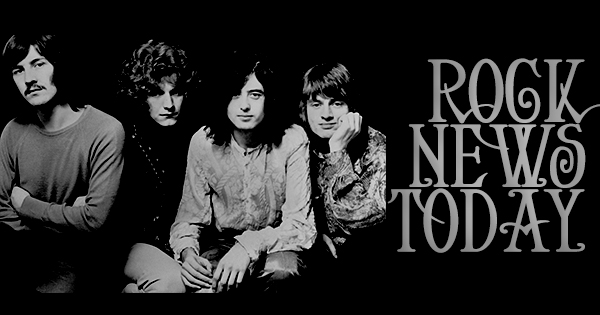



Buddy Guy, turning 85, is still working to keep the blues alive

Buddy Guy, turning 85, is still working to keep the blues alive
How do you define the blues? Carlos Santana, John Mayer, Kingfish and Gary Clark Jr. answer the question differently in a new documentary, but all agree that one of the genre's foundations is fellow guitarist Buddy Guy.
The Rolling Stones. Eric Clapton. Stevie Ray Vaughan. All acknowledge Guy as the man who has most influenced their sound and how they play, and in PBS’ “American Masters — Buddy Guy: The Blues Chase the Blues Away,” which premieres at 9 tonight on PBS and the PBS video app, the 84-year-old blues master, Rock & Roll Hall of Fame inductee and eight-time Grammy winner tells his story in his own words.
It's a story that has been told before, so much so that Guy isn't as interested in talking about his life as he is in trying to make sure that the blues and the musicians who helped define it are still talked about. That left other contemporary musicians like Mayer and Clark to add their input on how Guy, who spent his early years as a sharecropper in Lettsworth, La., became one of the most influential guitarists of all time.
In a phone interview, Guy talked about influencing the British Invasion, white versus black fans and the legacy of the blues.
What was it about your story that you wanted to get out there?
Well, the blues is ignored compared to what used to be. Your big radio stations don’t play blues any more. When I came to Chicago some 60 years ago, all your great blues players were living and playing. They would always tell me, "Try not to never let the blues die." But I look around and yesterday is gone.
Wonder where yesterday went. It’s really me and Bobby Rush as the only senior citizens playing. So, whatever I can do with my days — I’ll be 85 years old on the 30th of this month I’m still trying to keep the blues alive, man. It’s not easy when you’re by yourself. Somebody was interviewing me a few months ago and said, "I need to talk to somebody who knew you from way back when to get some information on you." I said, "Well you need to go to the graveyard, then, cause everybody older than me is gone."
You picked up a guitar very young. When did you think it could be something you’d make a career out of?
My dad gave this guy a couple of dollars and bought me a guitar with two strings on it. I must have been about 15 or 16. It wasn’t no future in it. I just wanted to do something that you couldn’t find nobody else doing. When you found a guitar player back in those days, they were sticking out like a sore thumb.
It wasn’t no future. When I first met Lightnin' Slim, and even B.B. King told me when he first started, they wasn’t making any money. If you played music well enough in the ’20s and ’30s for those house parties and Saturday night fish fries, you got a couple of good glasses of wine. And if you played well enough and sang well enough, you got you a good-looking girlfriend.
Even when you were in the blues-rich Chicago scene, you were driving a tow truck with your guitar in the back?
I was driving the tow truck in the daytime, getting off at 5 or 6, then I’d go in a dressing room, take a shower, and go play a gig for $3 that night. I was making $2.11 an hour driving that truck. Just to make ends meet, cause I had three children.
All Black musicians … Didn’t nothing good happen to us until the British started playing the blues and exposing the blues to the white audience. And right now, wherever I play, my audience is 90% white. Don’t nobody Black come to hear the blues anymore. I was walking across the street with B.B. King maybe 15 or 20 years ago outside his club. This Black lady walked up and said, "These white people took the blues away from us," and he said, "No, ma'am. Y’all just quit listening to it."
Why do you think Black people haven’t continued to embrace the blues?
I wish I could answer that. If I knew, I would’ve answered that maybe 60 or 70 years ago. I think a lot of people don’t want to hear about what happened, or what’s happening. The lyrics tell you about something you did good or something you did bad. We always sang about everyday life.
What were you thinking when the Rolling Stones were watching you recording “My Time After While” during a session?
Muddy Waters had helped them bring their instruments upstairs to do an audition. I had never seen white men with hair that long and high-heeled boots. I wanted to curse. First thing I wanted to know was, "Who in the hell is this y’all bringing in on my session?"
How did you end up hooking up with the Yardbirds in England? Apparently, those shows were pretty influential to future stars there.
First of all, I was booked to go to England. I said, "Well, I’ve never been out of the country" — I think I had been to Canada — "so this is my chance to go overseas." I didn’t know those guys, and now they are some of my best friends. [Eric] Clapton. [Jeff] Beck. Jimmy Page. Keith [Richards]. I didn’t know they had heard of me, and now every time I see ‘em, they tell me about how they all slept in a van [to come see me play]. Then they got famous and came to the U.S. and was helping us out — Black Americans — by letting Americans know where they got their movement from. All four of ‘em said they didn’t know a Stratocaster could play blues until they saw me. Eric Clapton once told me that I was playing in the key of B-flat and threw the guitar in the air and caught it still playing B-flat as it was coming down. I don’t even remember that. I guess I was just at the right place at the right time.
Who will carry on the blues?
The way the blues is being treated right now, that’s a good question. If you ain’t got satellite radio, you ain’t gonna hear it no more. Let me explain this: I got a son. He’s 40 now. He was in the house with me. DJs would put the speakers out during the Fourth of July, and he would play Michael Jackson and Prince. Every time they would put my record on, he would snatch it off. I wouldn’t say nothing. When he turned 21, he went to a club, and they were playing my record and he started crying. He said, "Oh, my God. I didn’t know you could do that." And he’s been a blues player ever since.
Jevon Phillips - Los Angeles Times
Listen to two previously unreleased songs by The Beach Boys

Ahead of The Beach Boys forthcoming new box set, Feel Flows – The Sunflower and Surf’s Up Sessions 1969-1971, the legendary group have shared two previously unheard tracks.
The new release is due on August 27th via Capitol/UMe and boasts an incredible 135 tracks, including a staggering 108 previously unreleased songs. On top of that, there’s also live recordings, radio promos, alternate versions, alternate mixes, isolated backing tracks and a cappella versions taken from those famous sessions.
Today, the group have shared a brand new acapella version of ‘Surf’s Up’, which was written for their notorious Smile album but became the titular track of a later album. Meanwhile, they’ve also shared a ‘reimagined mix’ of ‘This Whole World’, which initially appeared on their 1970 album, Sunflower.
Brian Wilson’s lead vocal on ‘Surf’s Up’, remarkably was recorded in 1966 during the aborted Smile sessions, before the group returned to the song and finally completed it in 1971.
‘This Whole World’, meanwhile, has been recreated for Feel Flows and features a stunning alternate lead vocal take from Carl Wilson, plus an unheard lead vocal part from Brian Wilson, which didn’t make the cut on the original.
Feel Flows is to honour 50 years of The Beach Boys’ duo of albums, Sunflower and Surf’s Up, which came out in 1969, and 1971 respectively. The expansive five CD boxset promises to explore these two years of the band’s career in depth.
The press release states: “Housed in a book style package, the set is rounded out with a 48-page book loaded with unreleased and rare photos, lyric sheets, tape box images, recording artifacts, insightful new liner notes by noted radio veteran and Beach Boys afficionado Howie Edelson, and new and archival interviews from Al Jardine, Brian Wilson, Bruce Johnston, Carl Wilson, Dennis Wilson, Mike Love, and others. “
CREDITS: faroutmagazine.co.uk/ - Joe Taysom
‘Becoming Led Zeppelin,’ first ever band-authorized documentary, premiering in September.

Becoming Led Zeppelin, the first ever authorized documentary about the iconic '70s rock group, will make its debut at the 2021 Venice Film Festival in September. The film was made by Bernard MacMahon and features band members Jimmy Page, John Paul Jones, John Bonham, and Robert Plant.
“Becoming Led Zeppelin is a film that no one thought could be made,” MacMahon said in a statement. “The band’s meteoric rise to stardom was swift and virtually undocumented. Through an intense search across the globe and years of restoration of the visual and audio archive found, this story is finally able to be told.”
MacMahon directed the 2017 docuseries American Epic, about American roots music in the 1920, of which the band are fans. "When I saw everything, Bernard had done both visually and sonically on the remarkable achievement that is American Epic," Page said in the press release, "I knew he would be qualified to tell our story.” Plant said, "Seeing Will Shade, and so many other important early American musicians, brought to life on the big screen in American Epic inspired me to contribute to a very interesting and exciting story.” The film features never-before-seen archival footage of Led Zeppelin, with state-of-the-art remastered sound, as well as footage of the music that inspired the band.
“With Becoming Led Zeppelin my goal was to make a documentary that looks and feels like a musical," McMahon said. "I wanted to weave together the four diverse stories of the band members before and after they formed their group with large sections of their story advanced using only music and imagery and to contextualize the music with the locations where it was created and the world events that inspired it.
I used only original prints and negatives, with over 70,000 frames of footage manually restored, and devised fantasia sequences, inspired by Singin’ In The Rain, layering unseen performance footage with montages of posters, tickets and travel to create a visual sense of the freneticism of their early career.” The Venice Film Festival runs September 1-10 -- learn more here. No word on a wider release yet. Stay tuned.
You can pick up Led Zeppelin's 1969 debut and their untitled 1971 album (aka Led Zeppelin IV, with "Stairway to Heaven" and more).
CREDITS: Brooklyn Vegan
Slash to Release New Album on Gibson Guitar Record Label

Mark Knopfler First Studio Albums Getting Box Set
Mark Knopfler’s first studio albums are being remastered for a new box set collection. Mark Knopfler – The Studio Albums 1996-2007 is being released on December 10, 2021, as 6-CDs or 11-LPs. The set marks the 25th anniversary of the Dire Straits’ legend’s debut solo effort which was released in 1996. The box will feature Knopfler’s first five studio albums as a solo artist – Golden Heart (1996), Sailing to Philadelphia (2000), The Ragpicker’s Dream (2002), Shangri-La (2004), and Kill to Get Crimson (2007) – plus an exclusive bonus disc of studio b-sides from this period. (This marks the first time Golden Heart and Sailing to Philadelphia have been released on vinyl.)
Each album was at or new the U.K. top 10 when they were released.
The audio of each album has been newly remastered by Miles Showell at Abbey Road Studios in London and the LPs will be pressed on 180-gram vinyl. The boxed set will include a download card and six embossed art prints of each of the albums covers. The CD set will come housed in a deluxe clamshell box with the CDs in wallets with folded double-sided printed inserts, plus six art cards of each of the album covers.
CD6: Gravy Train: The B-Sides 1996-2007
1. “Small Potatoes” 2. “What Have I Got To Do” 3. “Gravy Train” 4. “My Claim To Fame” 5. “Summer Of Love” 6. “Camerado” 7. “Tall Order Baby”
8. “Let’s See You” 9. “The Long Highway”
From the July 28 announcement: Knopfler is one of the most successful musicians the U.K. has ever produced and is often cited as one of the greatest guitarists of all time. He first came to prominence in the ’80s as leader of Dire Straits, with such signature songs as “Sultans Of Swing,” “Money For Nothing,” “Romeo and Juliet,” and “Walk of Life.” The band broke up in 1995 and Knopfler set off on a new path as a solo artist.
In the ensuing years, he has released nine solo albums of rootsy rock and has continued to tour the globe with his band. Over the years, Knopfler has written the music for several films, including Local Hero, Cal, The Princess Bride, Last Exit to Brooklyn and Wag the Dog. He has played and recorded with such artists as Bob Dylan, Van Morrison, Tina Turner, Randy Newman, and the late Chet Atkins. Knopfler was made an OBE in 1999 and was given the Lifetime Achievement Award at the Ivor Novellos in 2012.
Credits: Best Classic Bands Staff








